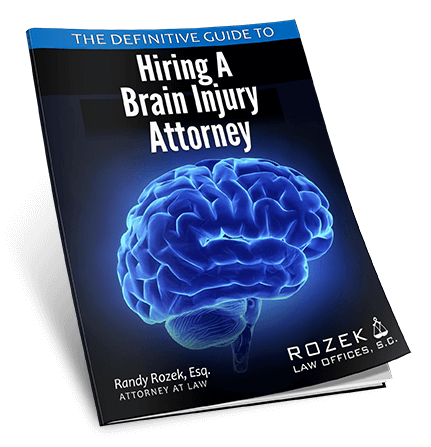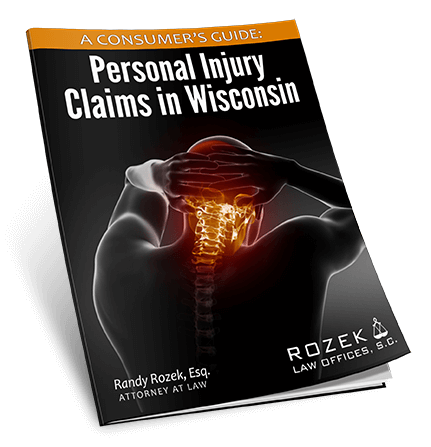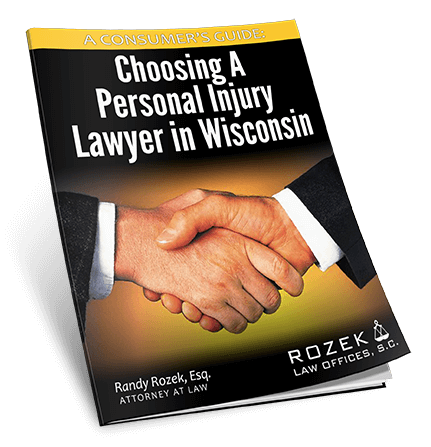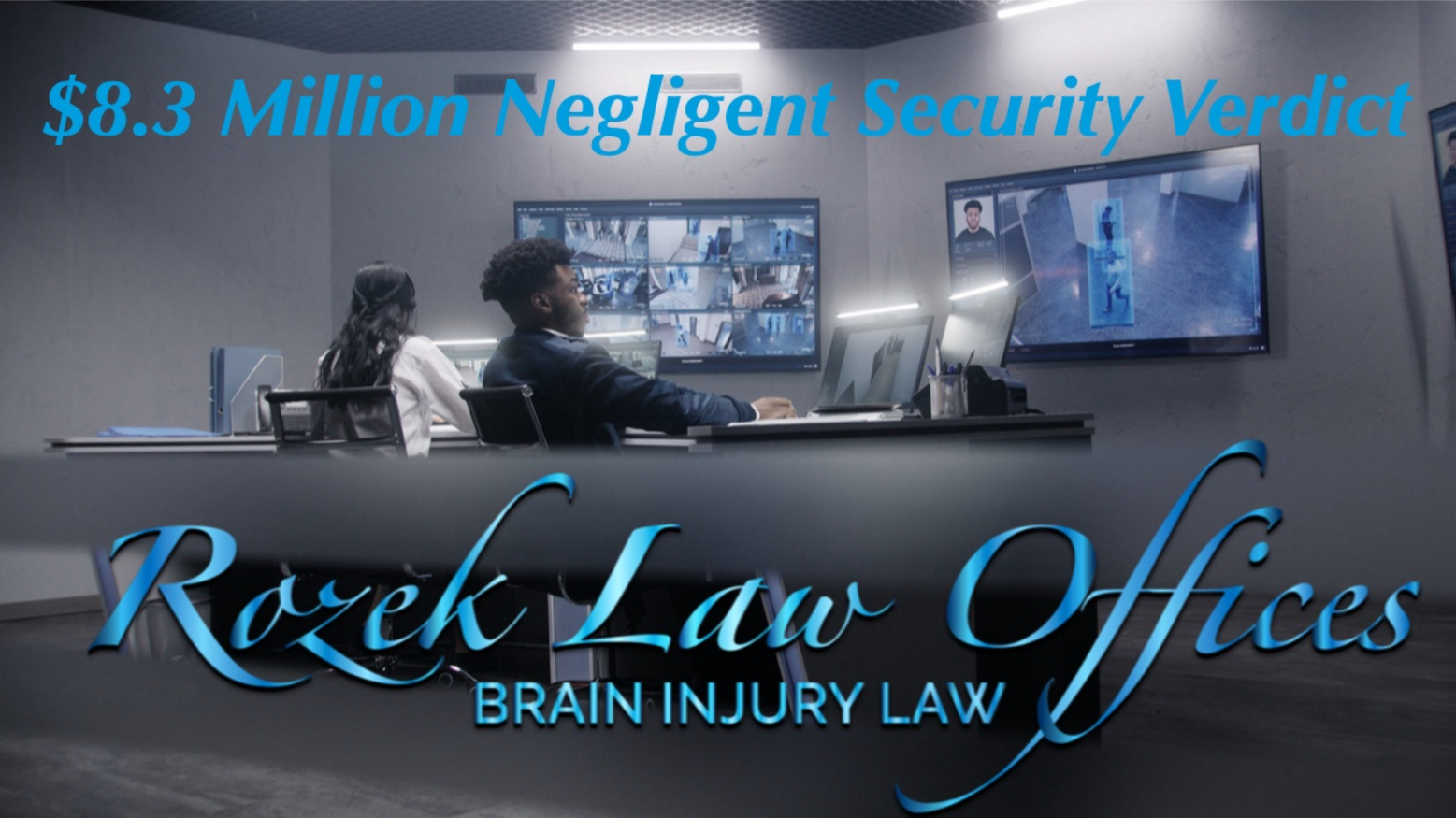Brain Injury Attorney
in Madison, Wisconsin
in Madison, Wisconsin
If You’ve Ever Suffered A Brain Injury in Madison, Wisconsin,
Hiring The Right Brain Injury Lawyer Can Make All The Difference

Traumatic Brain Injury Attorney in Madison, Wisconsin
As a Madison traumatic brain injury attorney, our team is well-versed in representing brain injury survivors. Traumas of the brain can inhibit the victim’s ability to perform everyday tasks. Unfortunately these brain injuries can affect not only the victim’s physical functions but can also take a toll on their loved ones.
Attorney Randy Rozek has successfully represented victims of brain injuries throughout the state of Wisconsin. Victims of traumatic brain injury
in Madison, WI and the Dane County
area should contact Attorney Rozek.
Cities:
- Edgerton
- Fitchburg
- Madison
- Middleton
- Monona
- Stoughton
- Sun Prairie
- Verona
Villages:
- Belleville
- Black Earth
- Blue Mounds
- Brooklyn
- Cambridge
- Cottage Grove
- Cross Plains
- Dane
- Deerfield
- DeForest
- Maple Bluff
- Marshall
- Mazomanie
- McFarland
- Mount Horeb
- Oregon
- Rockdale
- Shorewood Hills
- Waunakee
- Windsor
What is a TBI?
TBI is an acronym for “traumatic brain injury” and is defined as a force to the head or brain resulting in a disruption in the proper functioning of the brain. A direct blow to the head is not required to injure the brain. A traumatic brain injury can be caused by a bump, blow, or a jolt to the head or wound that breaks through the skull, a fall, or another injury that jars or shakes the brain.
All these traumas can result in the brain bruising, swelling, or tearing of brain tissue. The injury can dramatically disrupt the brain’s ability to function. Micro injuries to the brain cells can be permanent and can result in permanent deficits. According to UW Health, a traumatic brain injury (TBI) can range from a mild concussion to a severe head injury. People who have had a severe or repeated brain injury may have long-lasting problems with movement, learning, or speaking.
What are the symptoms?
Symptoms range from mild to severe and can last for hours, days, weeks, or even months.
These may include:
- Not thinking clearly, or having trouble remembering new information.
- Having headaches, vision problems, or dizziness.
- Feeling sad, nervous, or easily angered.
- Sleeping more or less than usual.
How is a traumatic brain injury diagnosed?
The doctor will ask you questions about the injury. He or she may ask questions that test your ability to pay attention, learn, remember, and solve problems. The doctor will check for physical signs of a brain injury by checking your reflexes, strength, balance, coordination, and sensation. The doctor may order imaging tests such as a CT scan or an MRI to make sure that your brain isn’t bruised or bleeding. You may need tests to see if your brain is working as it should.
How is it treated?
If your brain has been damaged, you may need treatment and rehabilitation, perhaps on a long-term basis. This might include:
- Physical and occupational therapy
- Speech and language therapy
- Counseling to help you learn ways to cope with your feelings.
- Social support and support groups
- Medicines to help relieve symptoms like sleep problems, chronic pain, and headaches as well as anxiety, depression, or memory problems.
You may need to try different types of treatment before finding the one that helps you.
What do I do if I have TBI?
Make sure you see a doctor and let them know the symptoms you’ve been experiencing but it is important to explain the specific problems that you are dealing with in order for them to diagnose you properly. You may also need a loved one watch you closely to make sure that your symptoms aren’t getting worse. Follow your doctor’s instructions about how long you need someone to stay with you.
We also strongly recommend that you contact an experienced brain injury attorney to learn about your rights and to get the professional legal expertise you need, which you can find here at Rozek Law offices.
At Rozek Law Offices in Madison, Wisconsin, our Madison brain injury lawyers have handled several TBI cases representing clients who have suffered brain injuries.
Attorney Randy Rozek’s Experience
Veteran personal injury attorney Randall Rozek serves on the Board of the Traumatic Brain Injury Litigation Group of the American Association for Justice and is the editor of the Journal of Traumatic Brain Injury Litigation. A member of the Brain Injury Association of America, Rozek also speaks to lawyers and doctors in order to educate them on such issues, particularly in the area of representing victims of Traumatic Brain Injury. In May of 2016, a jury returned a $7.25 million verdict in a difficult bicycle vs. pickup truck collision after only 3 days of trial. The award was based on Rozek’s success at excluding certain damaging evidence and overcoming unfavorable testimony from the defendant, investigating police officer and an independent witness. In his closing, Rozek asked for $5.25 million, but the jury recognized the severity of his client’s injury and instead awarded $7.25 million.










